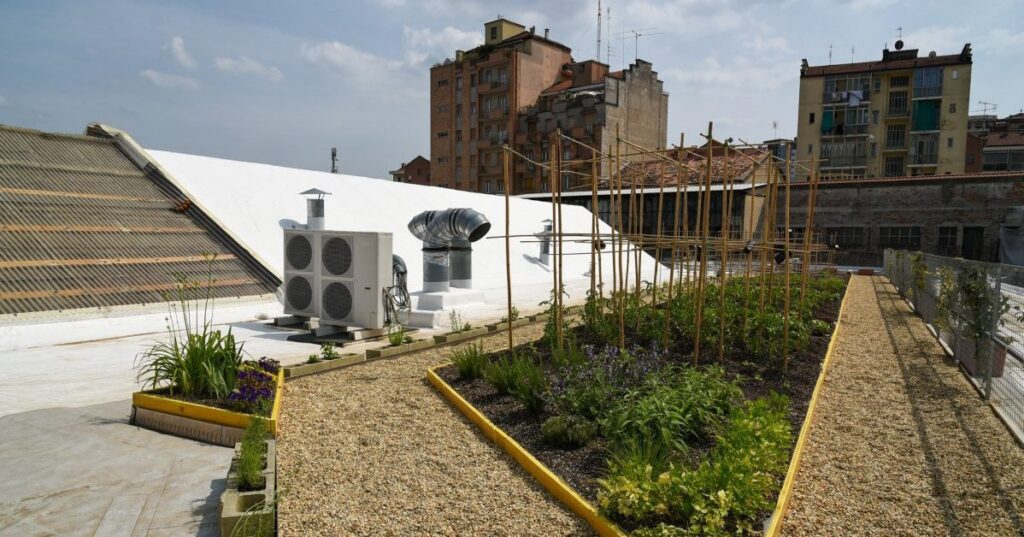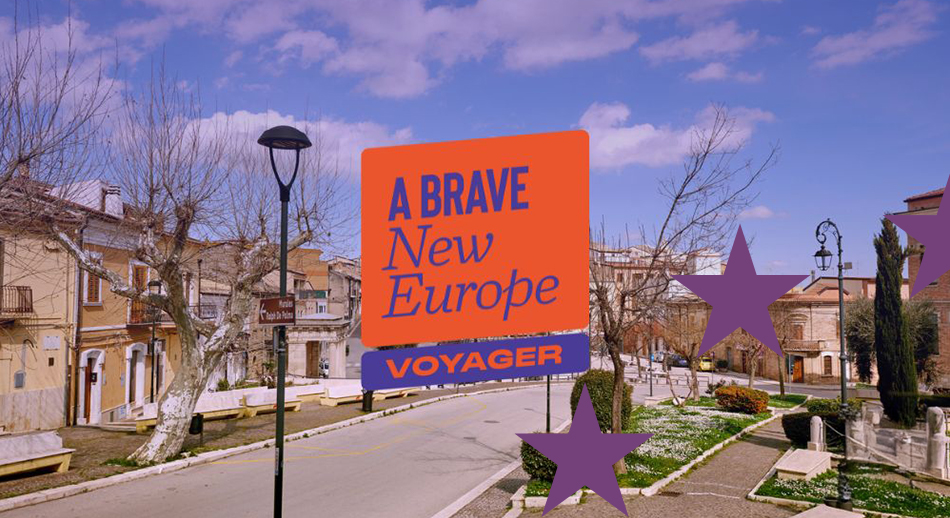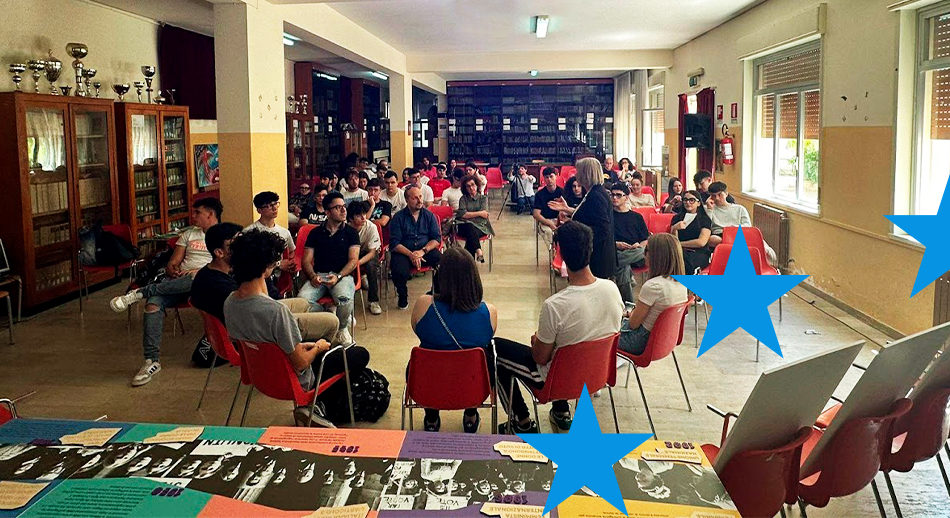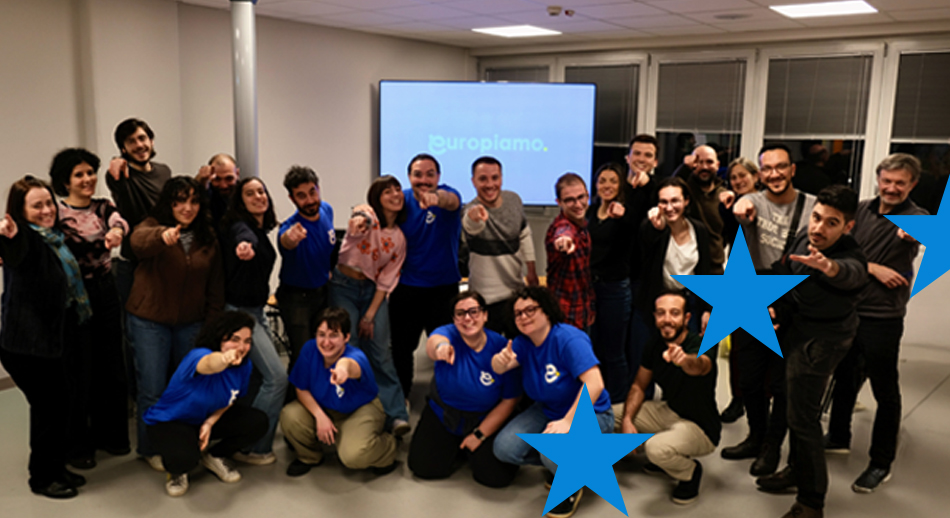We have recently told you about the major innovations introduced in Turin by the ProGIreg project: with 10 million euros in funding (including more than 2.5 for the Turin partners), a large-scale European consortium is experimenting with new urban forestation techniques to redevelop post-industrial areas in the Mirafiori South district.
To learn more about the project “from the inside,” we interviewed Emanuela Saporito, researcher, architect and community planner of OrtiAlti , who tells us about the experience of a small association and the steps that led it to success and participation in a major European project!
It all started with rooftop farming. Have you never heard of it and wonder how it can contribute to the environmental and social redevelopment of large areas of Turin?
Let’s take a few steps back and find out together!
Tell us about your idea: how did it come about? What does it consist of and why is it different from others? What group or organization did you implement it with?
Our idea of experimenting with “productive green” solutions in the city started way back, from our association with Elena Carmagnani, my partner and co-founder of the OrtiAlti association. With her I have always shared, along with a professional path and friendship, a passion for the many ways in which nature can respond to the challenges of contemporary cities.
Today OrtiAlti is the only entity active in our local organisations on issues of community farming and rooftop farming, an innovative concept that is also simple and old-fashioned: theuse of rooftops (which make up about 20 percent of a city’s surface area) to create urban agricultural production zones. A useful solution to redevelop urban areas from an environmental and landscape point of view, but also from a socio-economic point of view: the green area facilitates the emergence of caring communities, opportunities for social animation and micro-entrepreneurial opportunities.
This idea was presented by us in 2013 as part of another European project(LIFE funding) in which the Polytechnic University of Turin, the City of Turin and other private entities participated. The proposal was not successful, but the idea went forward, with tenacity and enthusiasm. In 2015, the OrtiAlti Association was established, and its activities soon gained wide resonance, turning us into the leading partner in this field.
After only two years, the opportunity for ProGIreg was born, a project that gives us the opportunity to put our idea and experience gained over the years into action on a large scale (at the Turin level but also at the European level). OrtiAlti is one of the project partners and is very active in codesign and practical implementation of urban forestry and biodiversity activities.
Through which line of European funds did you fund your project?
The project is funded by the Horizon2020 , subprogramme Smart Cities and Communities , call SCC-02 . Its activities officially began in June and are now in progress.
What are the main difficulties you encountered in presenting the project?
Participation in a project as a partner is much easier than participation as a leader, particularly if it involves large actions such as those funded by this Horizon2020 call. So the fact that we are a partner in a very large European consortium, of which Turin is one of the pilot cities (and as such highly represented in the partnership) has certainly facilitated us.
Our main difficulty? Even in our role as technical partners, we had to find effective solutions to problems that were not simple (identification and organization of space, mode of implementation, impact on the local community, etc.) within a larger framework (that of the project) with binding rules, partnership requirements, and timelines. For example, the planned activities must be documented and replicable in other European countries; they must be conducted in coordination with the more than 30 public and private partners participating in the project in 8 cities (7 European and one Chinese); and they may require adjustments in itinere (an urban area changes a great deal in the time it takes for the project to be presented, evaluated, and launched).
However, it was a great exercise in flexibility and adaptation that provided the opportunity for new solutions to emerge, while remaining the strength of the starting idea and its ability to channel the energies of the partners.
What was most helpful to you when preparing your European project, and what would you recommend to someone who wants to finance their own project with European funds?
Our experience testifies to this: it was absolutely crucial for us to believe in the idea, to be recognized in the local organisations for our capabilities, to demonstrate the effectiveness of our innovative proposals, and to cultivate a network of actors sensitive to these issues, waiting for (and creating together) theopportunity to make it a European project.
Of course, it is not easy for a small organization to participate in large European calls such as the Horizon2020 call of which ProGIreg is a part. Particularly for these types of projects, it is important to be able to rely on support from organizations that have specific expertise internally in the area of europlanning, such as a larger partner-it is also a great way to learn!
Goals are not always hit on the first try (as in the case of our previous LIFE experience) but a good idea and good teamwork, with time and tenacity, know how to find their place even in the context of a European project.
Don’t wait for the perfect call to cultivate your project, but believe in it yourself and put it to the test, even before you convince your funder or future partners!




